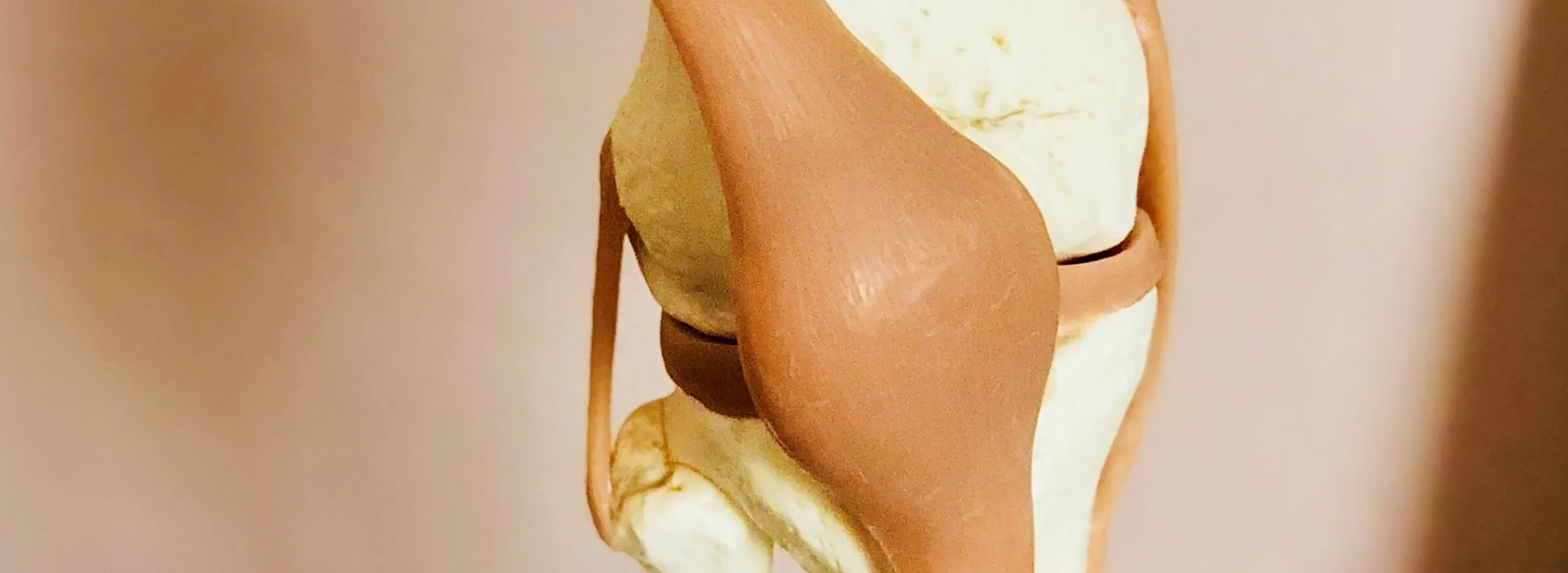5% OFF BY SUSCRIBING TO OUR NEWSLETTER
Collagen degradation over time

Alexandre Adamczewski

Collagen is a key component of bones, cartilage and tendons, and is therefore very important for joint health.
Over time and with intense effort, collagen production in the body naturally declines, which can lead to cartilage degradation and loss of elasticity and firmness, associated with joint pain.
What is collagen used for?
Collagen is a fibrous protein naturally present in the human body. It plays an essential role in the structure, strength and elasticity of many tissues and organs. Here are some of the main functions and uses of collagen:
Structural support: Collagen I for tendons and collagen II for cartilage are the main components of connective tissue, which supports and links the body’s various tissues. It is present in skin, tendons, ligaments, cartilage, bones and blood vessels, where it confers strength, stability and structure.
Joint support: Joints contain collagen, notably in the cartilage, whose main function is to provide a smooth, lubricated surface for the joint and facilitate the transmission of loads with a low coefficient of friction. Collagen helps maintain joint integrity and flexibility, promoting greater mobility and reducing the risk of joint pain.
Tissue regeneration: Collagen plays a crucial role in the regeneration of damaged tissue. It helps heal wounds, repair muscles and tendons, and rebuild tissue after injury or surgery.
Support for bone health: Collagen is a key component of bone structure. It confers strength and flexibility to bones, helping to prevent bone fragility that can lead to fatigue fractures in athletes, and prevent bone density-related disorders such as osteoporosis.

The evolution of collagen in the body over time
ollagen production in the human body naturally declines over time. Several factors contribute to this decline, including the aging process, environmental influences and lifestyle. Here are some key elements linked to collagen production over time:
- Aging: Age is one of the main factors influencing collagen production. From the age of 20 to 30, collagen production begins to decline progressively. This decline generally accelerates in the forties and fifties. In the skin, reduced collagen production contributes to loss of elasticity, wrinkling and reduced skin firmness. At joint level, this can lead to reduced joint mobility, thinning cartilage, fragile bones, ligaments and tendons, and collagen degradation during intense exercise.
- Environmental factors: Sun exposure, pollution, smoking and other environmental factors can also negatively influence collagen production. These factors can lead to oxidative stress, cell damage and inflammation, affecting collagen synthesis.
- Lifestyle: Certain aspects of lifestyle can also have an impact on collagen production. For example, poor diet, lack of sleep, excessive alcohol consumption and exposure to chronic stress can all contribute to reduced collagen production.
- Genetic factors: Individual genetic differences can influence collagen production. Some people may naturally have lower collagen production, which can make their skin more prone to the signs of aging.
How can I support collagen production?
It’s important to note that although collagen production declines with age and also during intense training, steps can be taken to support collagen production and maintain healthy joints and other tissues. This can include a balanced, nutrient-rich diet, limiting environmental stressors, using topical skincare products containing ingredients that promote collagen synthesis, and of course supplementing with hydrolyzed collagen to compensate for the natural decline in collagen production.
TO SUPPORT YOUR COLLAGEN PRODUCTION: TRY THE SYNERGY6 CURE
Hydrolyzed collagen supplementation
Hydrolyzed collagen supplementation has become popular due to its many health benefits. As type II collagen is a major component of cartilage, which covers joints, and type I collagen is a major component of tendons, hydrolyzed collagen supplementation can help maintain the integrity of cartilage and tendons, improve joint flexibility, reduce joint pain and support overall joint health. It can also help improve bone density, prevent age-related bone loss and reduce the risk of bone disorders such as osteoporosis.


